Centre Director attends the Africa CEO Forum in Rwanda
Amit Jain makes his first official visit to the fast-growing business friendly republic
 Amit Jain at the Africa CEO Forum held in Kigali Convention Center.
Amit Jain at the Africa CEO Forum held in Kigali Convention Center.
The Director of the NTU-SBF Centre for African Studies Amit Jain was in Rwanda for the Africa CEO Forum in May. The Forum, which has been billed as the Davos of Africa saw more than 2000 delegates representing the private sector, investment promotion bodies and financiers from over 75 countries arrive in the Rwandan capital Kigali for a two-day conference.
Among those attending included several Heads of States and Chief Executive Officers of major corporations. These included President Paul Kagame of Rwanda, President William Ruto of Kenya, Aliko Dangote of the eponymously named cement, fertilizer and oil refinery conglomerate Dangote Group and Patrick Pouyanne, the CEO of the French energy firm TotalEnergies. The Centre Director interacted with many such dignitaries and took part in several talks and panel discussions. Zimbabwean Ralph Mupita, who took the reins of the telecom giant MTN in 2020, was awarded the African CEO of the Year at the Forum. Hosted in Kigali, for the second time, the Forum presented a venue for the private sector and policy-makers to engage in wide-ranging discussions that addressed issues affecting the growth, development and the economic prospect of the continent
During his visit the Centre Director also met with officials of the Rwanda Finance Limited (RFL) and exchanged views on how the business-friendly landlocked republic could emerge as a financial centre of choice for investors. Although RFL has been promoting the Kigali International Financial Centre (KIFC) as a venue for cross-border transactions in Africa and an investment facilitation hub, the state-run firm takes a more strategic approach to developing Rwanda as a financial centre. RFL officials told Jain they are trying to a create conducive ‘ecosystem’ for financiers to operate in Rwanda and use KIFC as a financial gateway to the rest of Africa. While investors are granted a preferential corporate income rate and exemption from withholding tax on dividends, interest, and royalty payments,
Rwanda is not competing with the likes of Mauritius on ‘aggressive’ tax incentives and light touch regulations that can potentially cast doubt on its reputation as a financial jurisdiction that facilitates tax evasion. Rwanda is focusing on technology and skills development to develop its financial industry. Jain identified the lack of depth in the African financial market as a vital impediment for its growth. He noted that except for the JSE, African capital market lacks both liquidity and scale. Jain suggested that RFL consider looking at joining the African Exchanges Linkage Project (AELP) – an initiative aimed at unifying key regional stock markets across the continent. Even as Rwanda woos foreign investors it should also try and make its capital market accessible to domestic investors. That would require educating retail investors on how to trade on the local bourse responsibly.
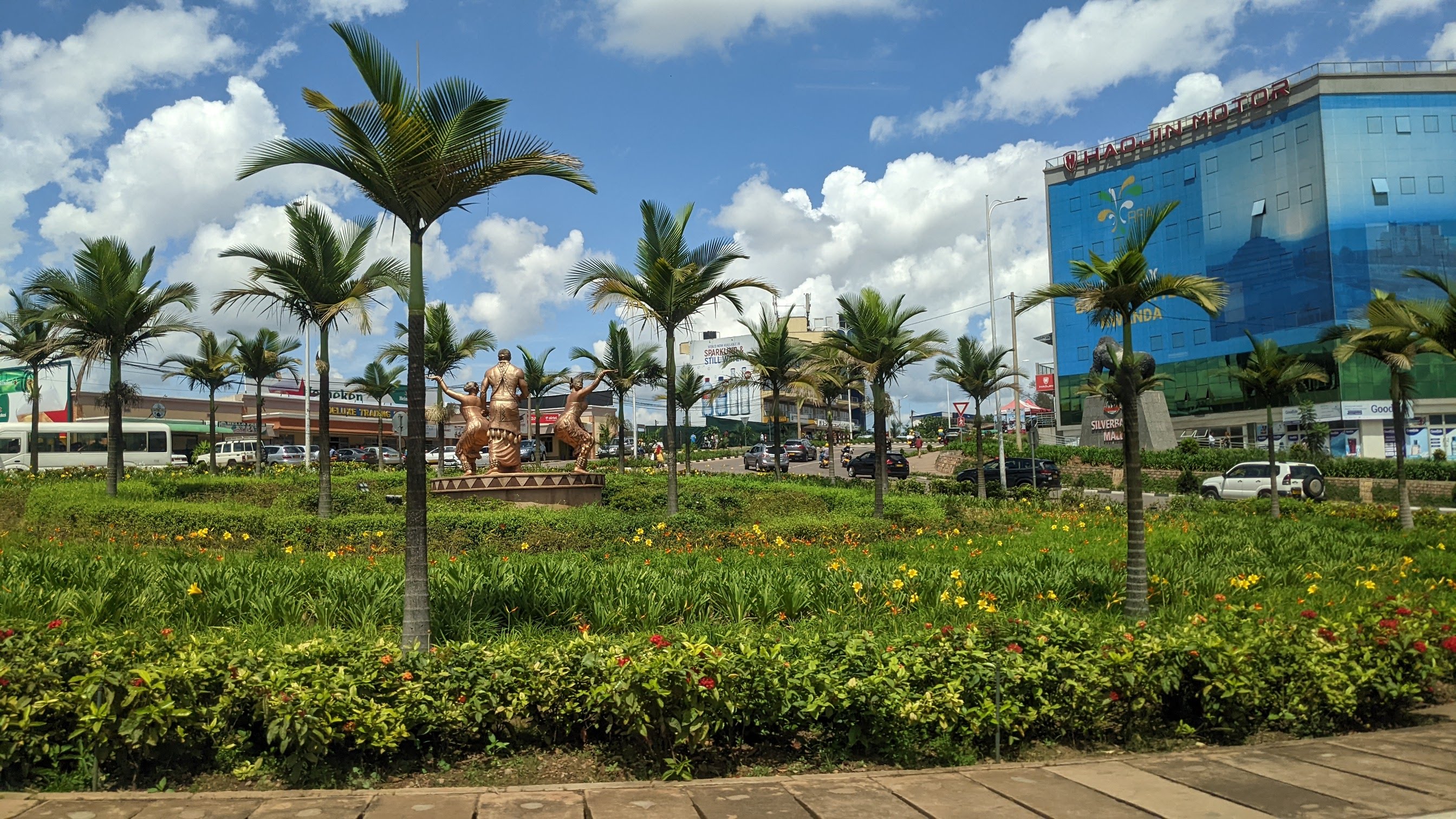 Roundabout in Kigali.
Roundabout in Kigali.
The Centre Director also met Tesi Rusagara, the recently appointed CEO of the national sovereign wealth fund during his visit to Rwanda. The Agaciro Development Fund (ADF) was established in 2012 in response to geopolitical pressure that saw western donors hold back development funding for Rwanda over its alleged support for a Congolese rebel group that protects the Banyamulenge (ethnic Tutsis of Congo) from ethnic violence in the neighbouring Democratic Republic of Congo (DRC) but also undermines its sovereignty. The Fund, which currently has assets under management worth US$284 million, makes long term investments in both equity and fixed income assets. Rusagara told Jain that ADF is a ‘sector agnostic ‘patient investor’ that is willing to co-invest with Singaporean investor in commercial ventures that can make measurable social/economic impact. Investments committed by ADF are up to 15-years, but the project must be long-term must have strong ‘national development’ outcome.
The Deputy Director of the Rwanda Development Board, Nelly Mukazayire outlined the key priority sectors for growth and job creation – manufacturing, agriculture, mining, high-end tourism, and education. She told the Centre Director that Rwanda is relying on private sector led economic growth and the RDB is committed to helping Small and Medium Enterprises (SME) grow. 98% of all local businesses are SME and they provide over 41% of the jobs. RDB can connect prospective investors with local entrepreneurs and can help facilitate business.
When it comes to the ease and speed of setting up a business entity Rwanda is comparable with Singapore. A foreign investor must first register by obtaining an investment certificate issued by RDB. A One Stop Centre for investment facilitation has been introduced and an online registration system to make the process more efficient. The process involves submitting an online application for investment certificate after having paid the application fee. It takes maximum 2 working days for an investor to obtain their investment certificate once all required documents are completed.
The Centre Director met with members of the Singapore diaspora community in Kigali. Among those he met were two young entrepreneurs - angel investor Sara Oon who has recently ventured into affordable housing and Rohan Shah, the creator of the highly acclaimed Rwandan rum brand – Imizi. The meeting took place over a dinner hosted by Derek Ong, the CEO of Magerwa, a cargo handling and warehouse providing facility that is 100% owned by the Singapore-based firm Portek.
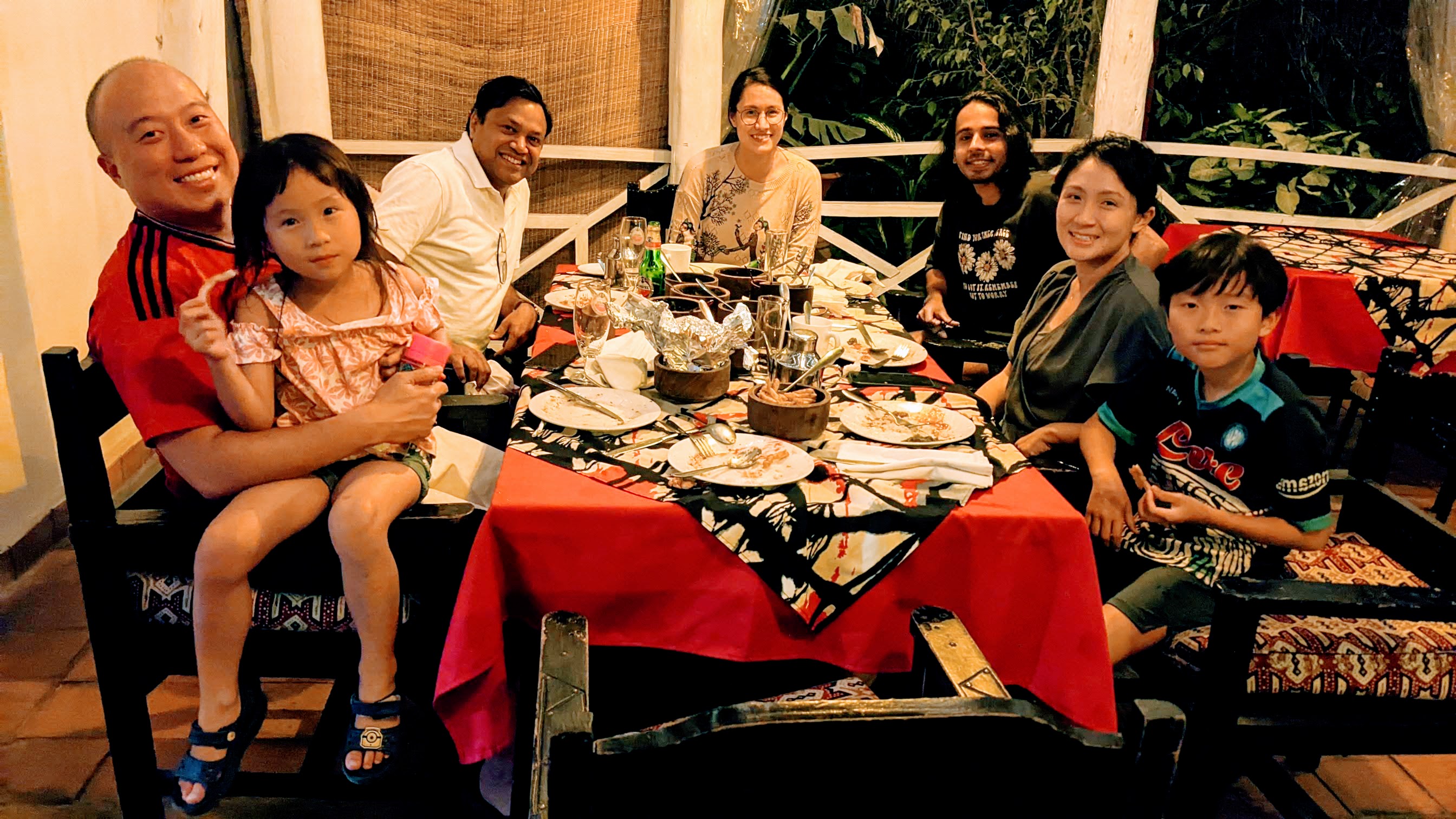 Amit Jain with Singapore diaspora in Kigali.
Amit Jain with Singapore diaspora in Kigali.
A notable highlight of his visit to Rwanda was a site visit of the Magerwa warehouse facility in Rubawu (also known as Gisenyi) at the border with the Democratic Republic of Congo (DRC), where Jain witnessed first-hand some of the inefficiencies that characterise cross border trade in Africa. Rwanda serves as a key gateway for DRC to import both essential commodities and everyday consumer goods. The bonded warehouse that Magerwa operates serves a critical link in that trade.
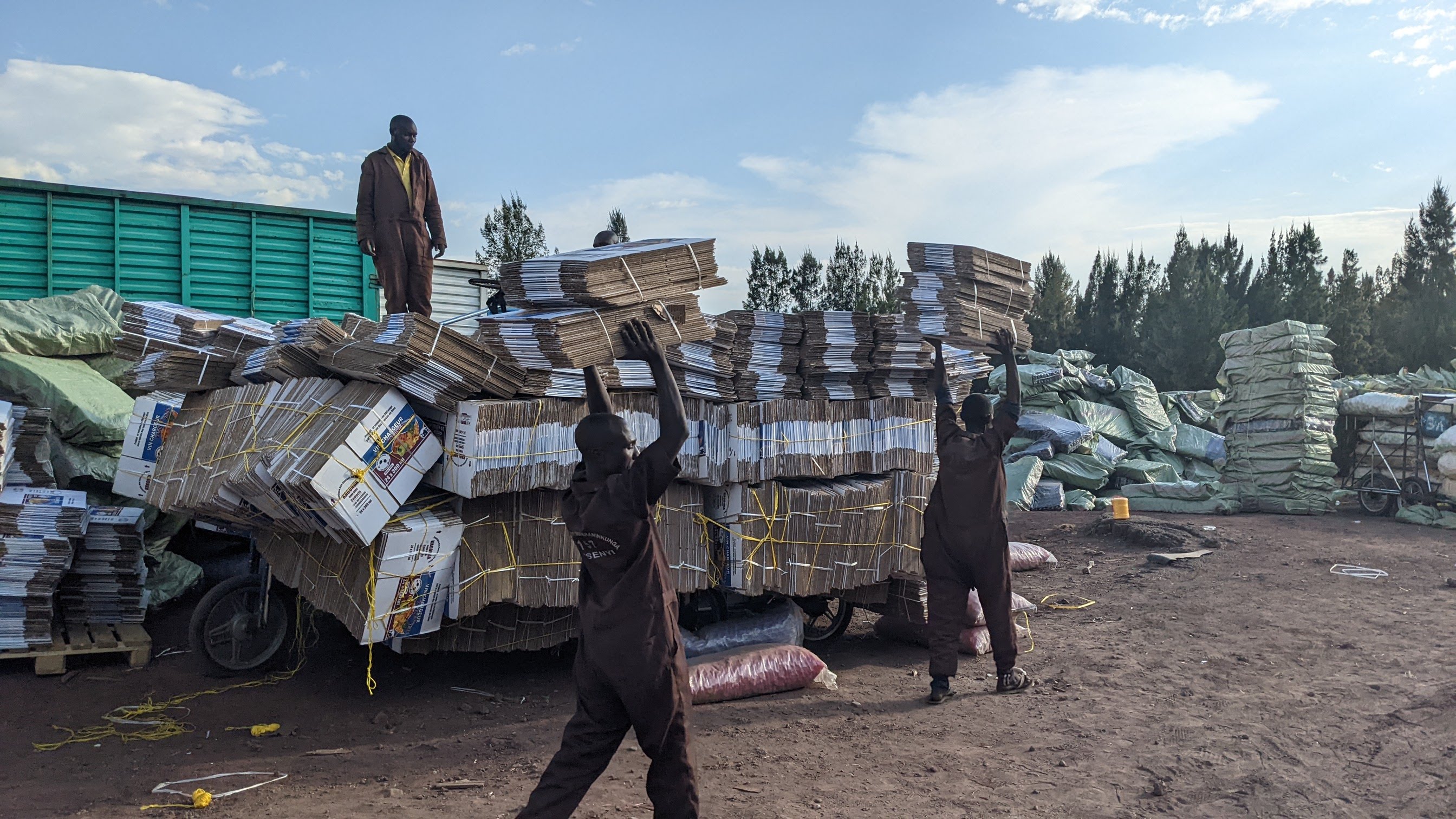 Cardboard boxes being offloaded at Magerwa.
Cardboard boxes being offloaded at Magerwa.
Jain saw sacks of Indian sugar, wheat and rice stacked up to the roof in the warehouse for onward shipment to DRC. Since container trucks cannot freely cross into each other’s territory goods have to be physically transferred from one carrier to another before making their way across the border. To avoid taxes and harassment by DRC customs traders often must resort to under invoicing their goods, mixing higher value goods with low-value items and bribes. Congolese traders (mostly women) buy bottles of beer and soft-drink from Rwanda and carry it on their person across the border into Goma – a crowded, dysfunctional, and often violent city. Very little came across from the DRC into Rwanda from this border, except for wood chips and beans. Kinshasa has accused Kigali of interfering in its internal affairs and bilateral relations are not in good order. In a security breach earlier this year an armed gunman entered the same border crossing and began shooting at the Rwandans before being gunned down himself. The bullet cracks were still visible on the glass panel of the screening room when Jain visited. Wealthy Congolese looking for safety have acquired homes and properties in Gisenyi, which overlooks the scenic Lake Kivu. Many Congolese now send their children to Rwandan schools to learn English and acquire education whose quality is widely considered to be better. Unlike Rwanda, where English has replaced French as the language of business, schooling in the DRC is still conducted in French.
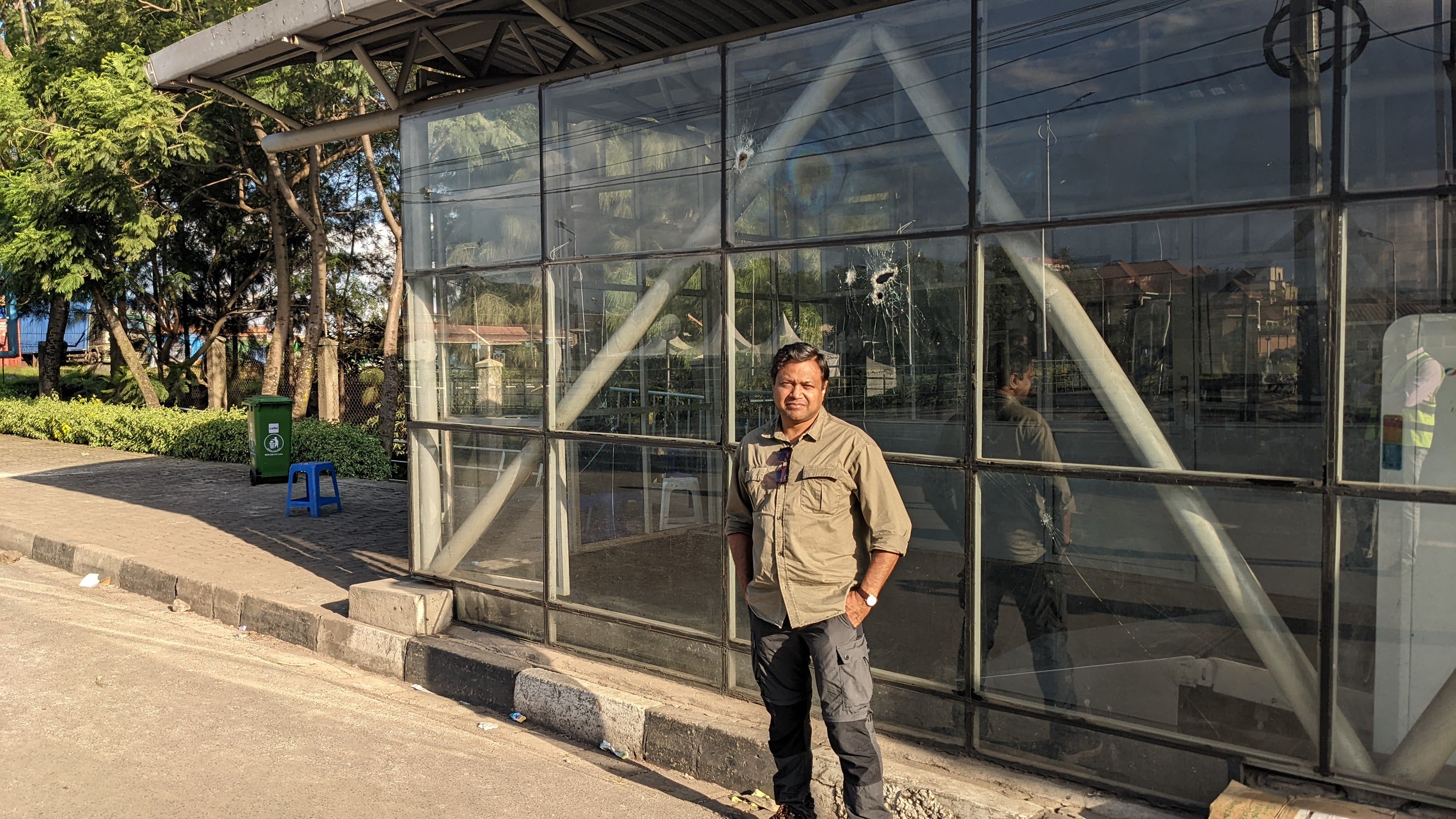 Amit Jain in front of the bullet-ridden screening room at the Democratic Republic of the Congo–Rwanda border.
Amit Jain in front of the bullet-ridden screening room at the Democratic Republic of the Congo–Rwanda border.
Amit Jain also met Ronak Gopaldas, a fellow at the NTU-SBF Centre for African Studies and the Africa CEO Forum and visited the Kinunu coffee farm near Kibuye which produces processes over 35 tonnes of high-grade coffee per year and provides employment to more than 200 workers – mostly women. He also visited the African Leadership University, which takes a less theoretical and more practical peer-learning approach to education tries to instil a sense of ‘mission’ in its graduates. Its beautiful hill-side campus which has been designed more like a top rated liberal-arts academic institution, caters to over 2000 students from all over the continent.
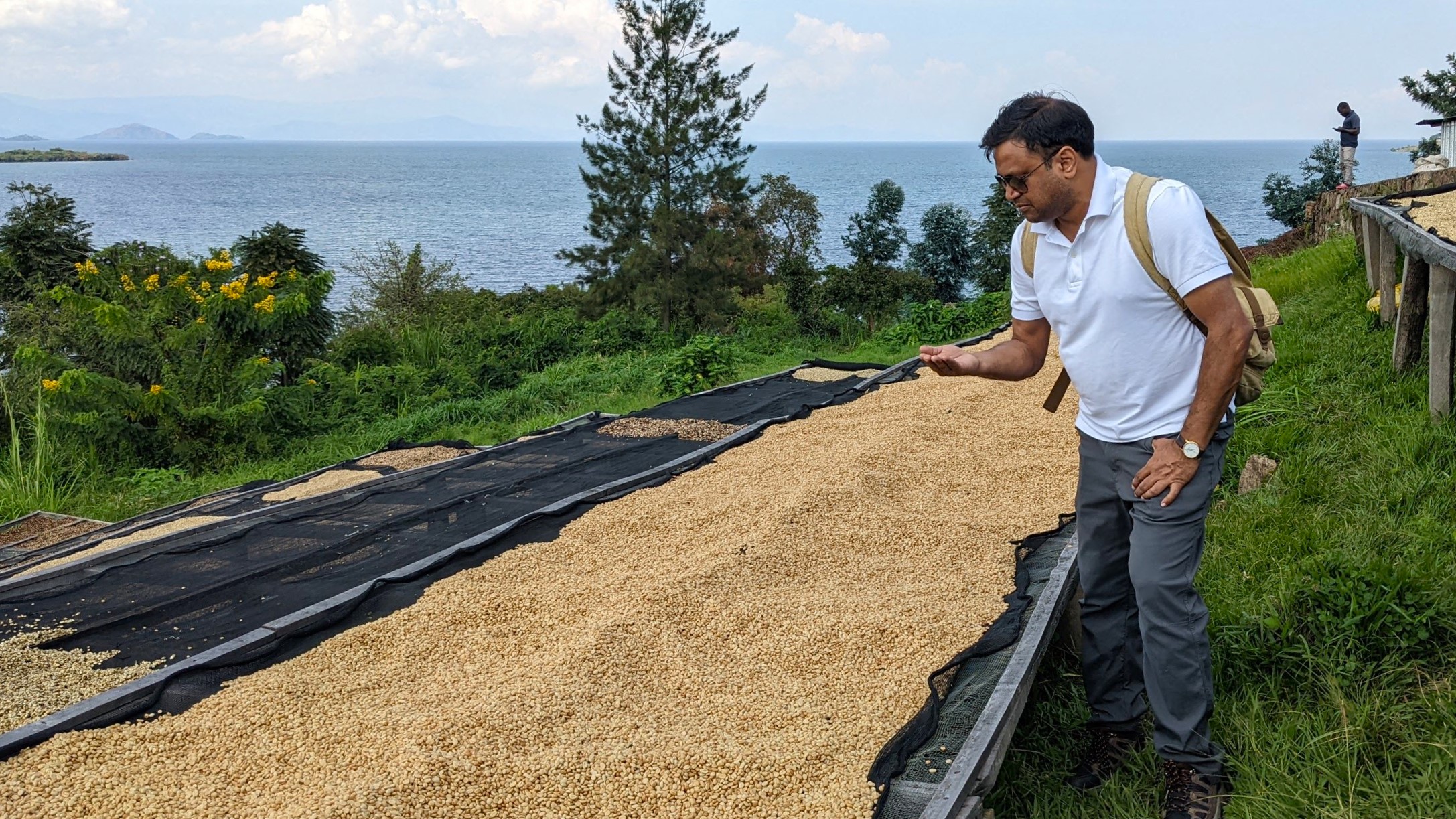 Amit Jain checking out coffee beans at the Kinunu coffee farm.
Amit Jain checking out coffee beans at the Kinunu coffee farm.
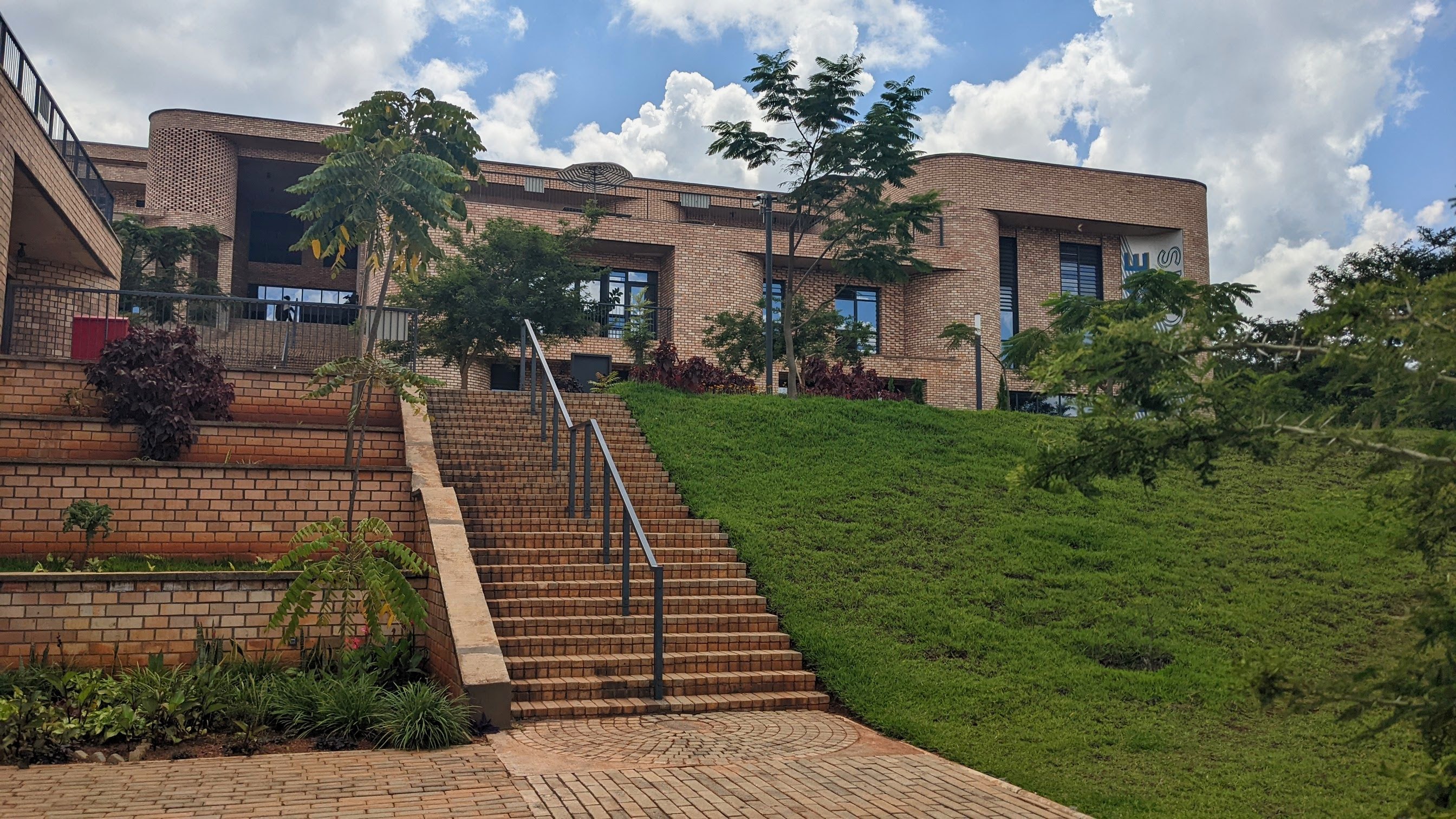 The African Leadership University campus in Kigali, Rwanda.
The African Leadership University campus in Kigali, Rwanda.















/enri-thumbnails/careeropportunities1f0caf1c-a12d-479c-be7c-3c04e085c617.tmb-mega-menu.jpg?Culture=en&sfvrsn=d7261e3b_1)

/cradle-thumbnails/research-capabilities1516d0ba63aa44f0b4ee77a8c05263b2.tmb-mega-menu.jpg?Culture=en&sfvrsn=1bc94f8_1)







